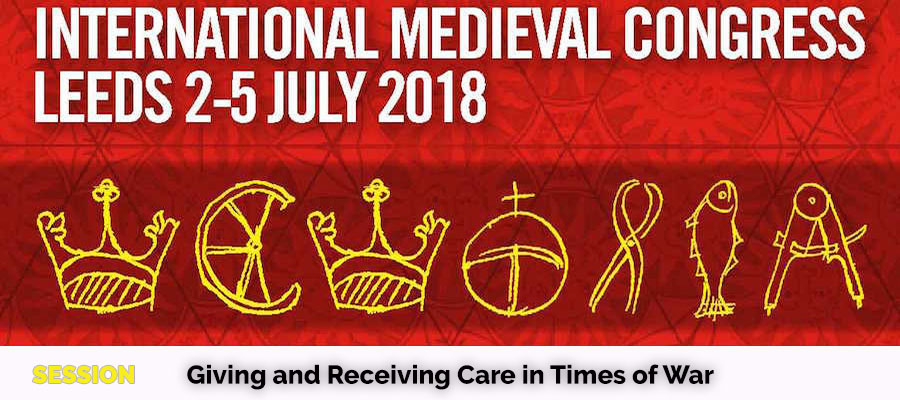Giving and Receiving Care in Times of War, 25th International Medieval Congress, University of Leeds, July 2–5, 2018
During conflicts, bodies and minds are subjects to injury. Although a truism, this aspect of the experience of medieval warfare is somewhat underexplored. Recent studies of wounds and wounding and the incidence and experience of sickness during military campaigns have begun to focus attention on how medieval combatants and non-combatants suffered bodily and mental damage in times of war. At the same time, new work has put this experience in a medical context, examining contemporary sources to see how the experience of infirmity in times of war was recorded and interpreted by observers in the medieval medical framework of humoralism. However, there is scope for further investigation across the whole medieval period, and in particular on the experience of the incapacitated as recipients of bodily, psychological, medical, and spiritual care.
The experience of the injured, sick, and incapacitated is one half of the any medical history; the identity and practice of those who offer care to them is the other half. The role of the carer is a complex one. Carers might have significant knowledge of nursing or medicine, or be thrust into the role of carer by circumstance. They may experience physical and emotional labour in offering care to the incapacitated, and need care themselves. Recent work on the history of medical practitioners shows us that we should look beyond those identified as ‘medics’ in contemporary to fully understand the landscape of medical care in the Middle Ages, but such pluralistic approaches have not yet been fully exploited, nor applied to the context of care in warfare.
It is the aim of these proposed sessions to explore the role, agency, behavior, and subjective experience of recipients and givers of care in times of warfare throughout the whole medieval period, taking in the early, central,and later Middle Ages. Submissions from interdisciplinary background are particularly welcomed, including, but not limited to, work on narrative texts, literary works, documentary records, artistic sources, religious texts and others. Geographical and linguistic scope is not limited. Proposals will be considered for inclusion in a possible publication.
Topics for discussion could include:
- The identity of caregivers, both formal and informal
- The identity of those requiring care
- Care of the wounded and care of the sick
- Gendered aspects of giving and receiving care
- Transportation of the sick, wounded, incapacitated
- Treatment of the dead
- Caring for enemies, or prisoners of war
- Physical and psychological care
- Spiritual care
- The depiction of care in literary or artistic sources
- The care of injured, incapacitated or disabled combatants and non-combatants
- The care of animals in a military context
- The relationship between nursing and medical care/treatment
- The absence of care
Session organizer
Joanna Phillips, University of Leeds
